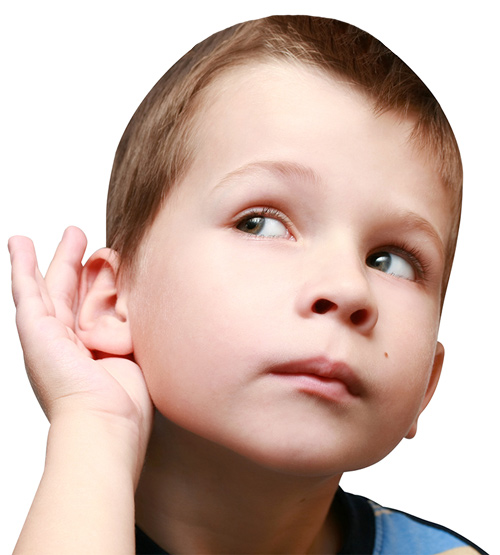Auditory Processing Disorder (APD)
 A person with Auditory Processing Disorder (sometimes known as Central Auditory Processing Disorder) has normal hearing, but has difficulty processing the information they hear. In other words, they have difficulty recognising and interpreting what they hear.
A person with Auditory Processing Disorder (sometimes known as Central Auditory Processing Disorder) has normal hearing, but has difficulty processing the information they hear. In other words, they have difficulty recognising and interpreting what they hear.
APD affects children and adults alike. Your child may have APD if he or she has a number of the following characteristics:
Your child:
- Has difficulty listening in background noise
- Performs better in quieter settings
- Is bothered by loud or sudden noises and noisy environments
- Has difficulty locating where a sound is coming from
- Has poor auditory memory skills
- Has difficulty following instructions and directions
- Misunderstands things that are said and confuses similar sounding words
- Needs things to be repeated several times and often says “huh?”, “what?”
- Has difficulty understanding abstract information
- Has a limited vocabulary
- Has difficulty following verbal (word) maths problems
- Has difficulty following conversations
- Has difficulty understanding sarcasm and jokes
- Takes figurative language literally (eg “Hold your horses!”, “I’ve got butterflies in my stomach”)
- Has difficulty with reading, spelling and writing
- Is often disorganised and forgetful
- Is very tired by the end of the school day
- Is easily frustrated
- Is unmotivated and negative about school
Children with Auditory Processing Disorder often (but not always) have a language disorder as well. APD is diagnosed by an audiologist and language disorders are diagnosed by a speech pathologist.
How can Liberty Speech Pathology help?
If your child has APD, Liberty Speech Pathology can work with your child to improve their outcome in six ways:
- Recommending changes to the child’s learning environment for optimum performance in school.
- Auditory training – therapy to improve your child’s auditory memory and listening skills.
- Language therapy – therapy to improve your child’s vocabulary and understanding and use of language.
- Higher level language therapy – therapy to help your child understand figurative language, jokes and sarcasm.
- Literacy training – working with your child to improve phonological (sound) awareness, then building on this to teach decoding strategies to improve reading.
- Providing your child with management strategies – equipping your child to take responsibility for hearing and understanding what is said.
REFERENCES:
Bellis, TJ (2006). Understanding Auditory Processing Disorders in Children.
Cameron, S. & Dillon, H (2005). Auditory Processing Disorder – From Screening to Diagnosis and Management – a Step-by-Step Guide. Audiology Now, Winter 47-55
Heine, C. (2003). Auditory Processing Disorders in Children: A Theoretical and Clinical Perspective. ACQuiring Knowledge in Speech, Language and Hearing, 5(3), 131-133
Mokhemar, MA. (1999). The Auditory Processing Kit. Illinois: Linguisystems, Inc.

